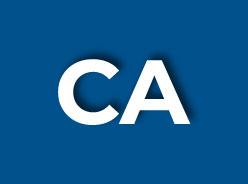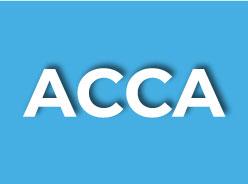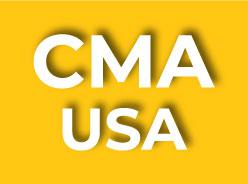CA, ACCA, CMA USA, CMA IND and CS Courses.
Apply NowIn times like this, almost every student undergoes a series of confusion in choosing the right course for them to pursue. There is a large number of courses out there, and to choose the most right one out of them is a difficult task. Unless, if there are right mentors and advisors for them, then they will find the task easy.
Consider us as your mentor. Here you will find all the details you need to know about our courses. You choose your preferred one and we will direct you along the right career path.
Company Secretary (CS) Course
Have you always wanted to be that person whose role is to look after the entire company operations? Are you bold enough to take such responsibility? Then try the Company Secretary (CS) Course!
Your role as a Company Secretary is to deal with the legal activities under your represented company. Your position, as a CS, will need you to look after the records, advise your client, file tax returns and determine the legal aspect of your company/organization. You will be the most important link between your company and its B of D (Board of Directors), stockholders, government and any other regulating authorities.
So what is the Eligibility criteria for CS course?
There are three stages in CS, which is a 3-year professional course. They are
1) Foundation Programme – 8 months
2) Intermediate/Executive Programme – 9 months
3) Final/Professional Programme – 15 months
If you are a student who has completed your 10 +2 or equivalent course, you will need to complete all the three mentioned stages in order to complete your CS course. You will also need to go through Practical Training, which will take about 15 months, after passing the Intermediate/Executive Programme or Final/Professional Programme.
Note – You should be a 10 +2 passed student of Science, Commerce or Arts stream.
And, if you are a student who has completed their Graduation, you only need to go through the second and third stages of the course. That is the Intermediate/Executive stage.
Programme and Final/Professional Programme. The requirement to go through the Practical Training for about 15 months also applies here after passing the Intermediate/Executive Programme or Final/Professional Programme.
Note – You should be a Graduate of any stream except Fine Arts.
Training – The above mentioned 15-month Practical Training or Management Training, which is the same, will be in companies, or under the guidance of a CS (Company Secretary) in practice, which all are registered with the Institute.
Behind every great company, there is a Company Secretary responsible for its success
So What’s more in it in the course?
You want to go into more details. You want to know if CS is easy to clear. You want to know more about the responsibilities of a CS and etc. Do not worry. You will be getting complete clarification from us.
So, is it easy to clear?
YES, it is. Although it should be mentioned that it’s not an easy task. The course has substantial-quality to it and therefore is a bit difficult to clear. It only shows the dignity and power one shall acquire in clearing the course.
Being a Company Secretary is a huge responsibility. Not only does it requires maximum level of confidence and patience, it also requires hard work to get there. And as the people say, hard work really pays off!
To put it simply, it is humanly attainable.
How long it will take to complete the course?
Ultimately, if you can clear all the exams at a go, without any failure, it will only take 3 three years to complete the course.
As we have said, there are three stages you have to succeed in the Company Secretary course.
They are -
1) Foundation Programme
2) Intermediate/Executive Programme
3) Final/Professional Programme
The first stage, the Foundation Programme is easy to pass, provided you have the basic knowledge in Law and Accounting. Also, it would be easier if you are a 10 +2 passed student of Commerce background. Basic eligibility criteria in appearing for CS course is 10 +2 (12th pass), and if you have already done your Graduation successfully, you are eligible to attend to Intermediate/Executive Programme without the need of paying attention to the Foundation Programme.
The second stage, Intermediate/Executive Programme is comparatively harder to do than the Foundation Programme. It has an overall passing percentage of 5 to 7 only. This stage demands complete dedication and your valuable time. Yet, it is only humanly attainable. With a steady study-flow and strategy, you can crack this programme easily without any delay.
The third stage, Final/Professional Programme is harder than its precursor programme. The overall passing percentage for this programme is only three.
This means, for getting into the next stage you have to successfully clear the initial one.
That is, you don’t need to prepare for all the three levels in a single year.
Lastly, there is Training. It should be mentioned here, to avoid the common confusion, that the terms Practical Training, Management Training or Article Ship Training, all are the same.
Before beginning your training there are things you needed to be considered first. The stage is almost a sacred one. What you do and how you conduct yourself in this stage will help build up your career.
Firstly, you must decide for yourself, whether you will be building up your career in a company or you will be starting your own practice. To begin your own practice, in future, you should be completing your training under PCS or Practising Company Secretaries. PCS are the ones who are registered with the Institute for carrying out training to CS students. They are also allowed to impart 15-days specialized training to the students under Regulation 50(b), of the Company Secretaries Regulations, 1982. Either way, choosing your right kind of company or PSC will do you good. Choosing a well-known one also determines favourable chances to you.
What is the Fee Structure of the CS Course?
Foundation Programme:
⦁ The Admission Fee is ₹ 2000
⦁ Fee for the Tuition is ₹20,000 +GST
Intermediate/Executive Programme
⦁ The Admission Fee is ₹ 2,000
⦁ Fee for the Tuition is ₹ 35,000 + GST
⦁ Therefore, Total Fee for Intermediate/Executive Programme is ₹ ****
The Examination Form Fee for the three programmes are listed below
⦁ For Foundation Programme it is ₹ 5100
⦁ For Intermediate/Executive Programme it is ₹ 9000 for Commerce Graduates,
10,000 for Non-commerce Graduate,
12,500 for Foundation passed of CMA or CA,
8,500 for CS Foundation Pass Student
⦁ For Final/Professional Programme it is ₹ ****
The Scope of the CS Course?
Few years ago, the scope of the students who have successfully cleared the CS was wide. Now, it has been wider than before– thanks to the Companies Act 2013. A Company Secretary’s role has been fully improved now.
Areas which need Company Secretaries’ services -
⦁ Financial Management
⦁ Project Planning
⦁ Legal, Secretarial and Corporate Governance
⦁ Corporate Restructuring
⦁ Foreign Collaborations and Joint Ventures
⦁ Capital Market and Investor Relations
⦁ Corporate Advisory Services
⦁ Arbitration and Conciliation
⦁ Due Diligence
Its Certificate Holder Can Become
⦁ Bank & building societies
⦁ Manager
⦁ Assistant Manager
⦁ Employer’s cooperatives
⦁ Investment sectors
⦁ Trade bodies
⦁ Housing Associations
⦁ Insurance companies
Some key responsibilities of CS include:
⦁ Hold a company’s records; have a proper eye on company’s tax returns and maintain it appropriately; and advise the B of D (Board of Directors) their duties and obligations for compliance, to a complete degree, with statutory legislation.
⦁ A CS (Company Secretary) is the most crucial link between a company and its B of D (Board of Directors), stockholders, government and any other regulating authorities.
⦁ A CS has to ensure if the Board procedures are strictly followed and review regularly; and rendering guidance to the existing Chairman and The Board of Directors in relation to their responsibilities under several laws.
⦁ Giving advice on good governance, and on compliance of norms that are prescribed under several Corporate, Securities, and laws of Business, and regulations and guidelines that are made under that.
⦁ A CS also should assist in developing a sustainable framework for corporate and social relations.
⦁ A CS is also responsible for Certification Services and Secretarial Compliance Audit. And should be representing a company on before consumer forums, law board, tax tribunals, registrars, securities appellate tribunal etc.
⦁ A key role in giving advice on the negotiation, arbitration and conciliations in times of commercial disputes between parties and also on drafting an agreement.
⦁ Giving advisory services for companies on matters like tax management, and tax planning (under Service Tax, Income Tax, VAT, Excise & Customs Laws etc.)
⦁ Rendering Advisory Services in share issues and other securities, both in India and abroad.
⦁ Responsible for drafting of prospectus, offer for sale, letter of offer and other necessary documents all related to issues of securities, and to get several approvals with lead managers.

 ABOUT LAKSHYA
ABOUT LAKSHYA  WHY CHOOSE LAKSHYA
WHY CHOOSE LAKSHYA  MISSION AND VISION
MISSION AND VISION  CHARTERED ACCOUNTANCY (CA)
CHARTERED ACCOUNTANCY (CA)  ACCA
ACCA  CMA-USA
CMA-USA  RESULTS
RESULTS 


